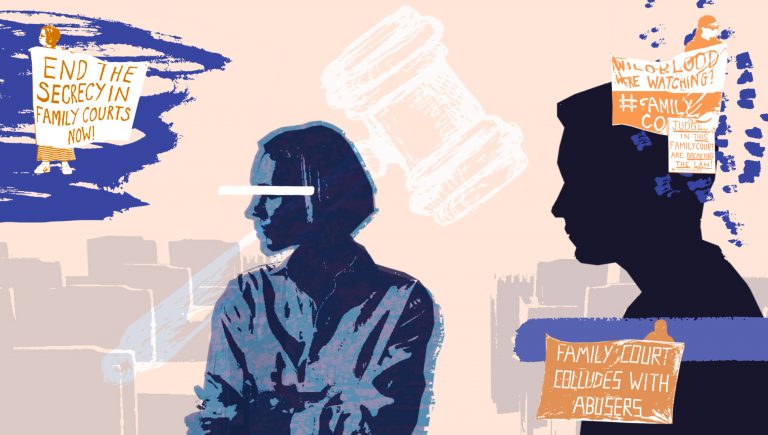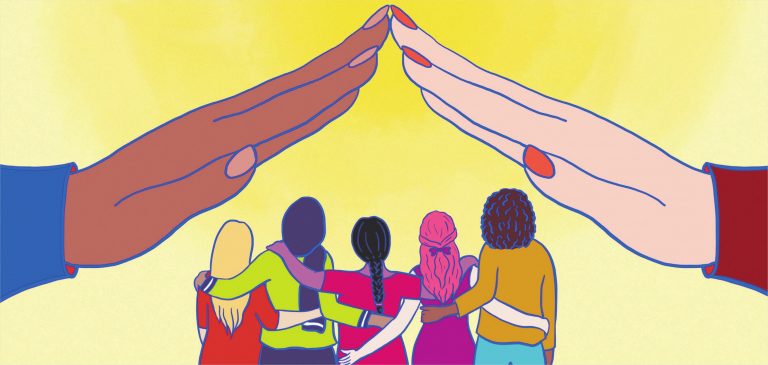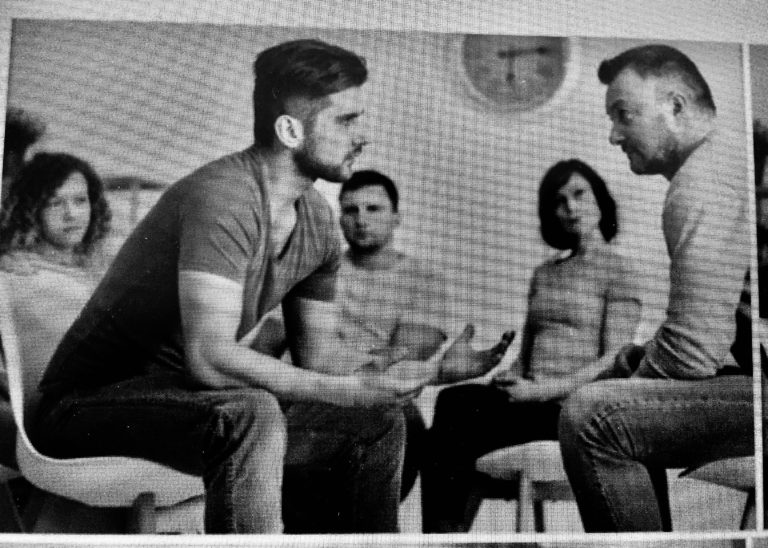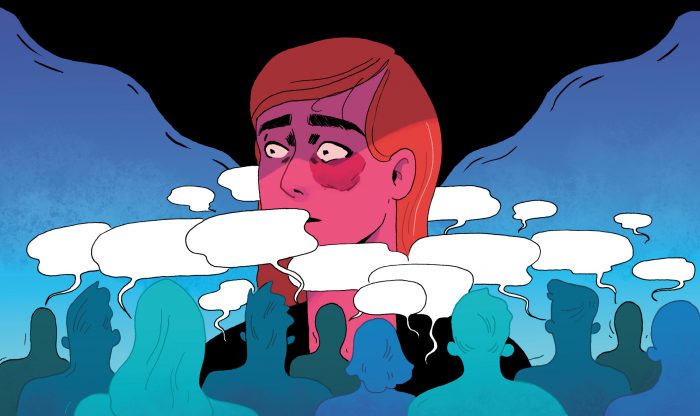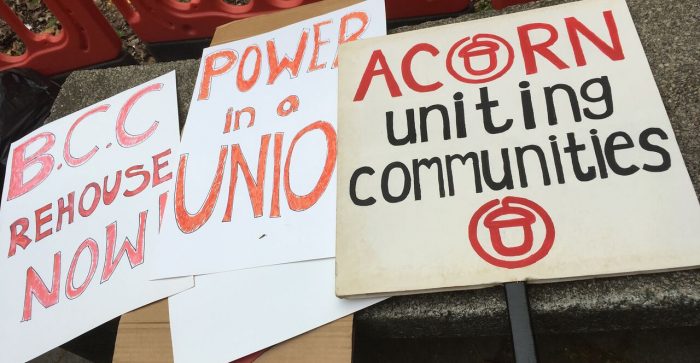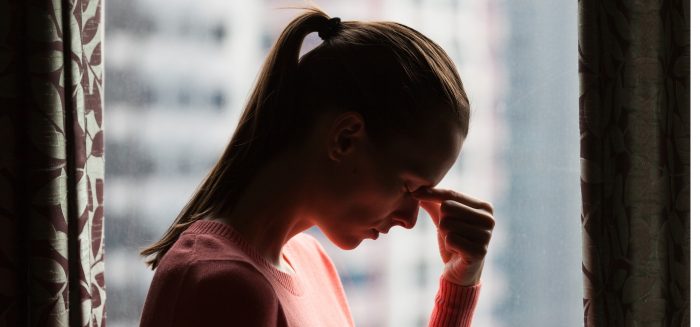‘Prison felt safer than the streets’: why women’s homelessness needs to be better understood
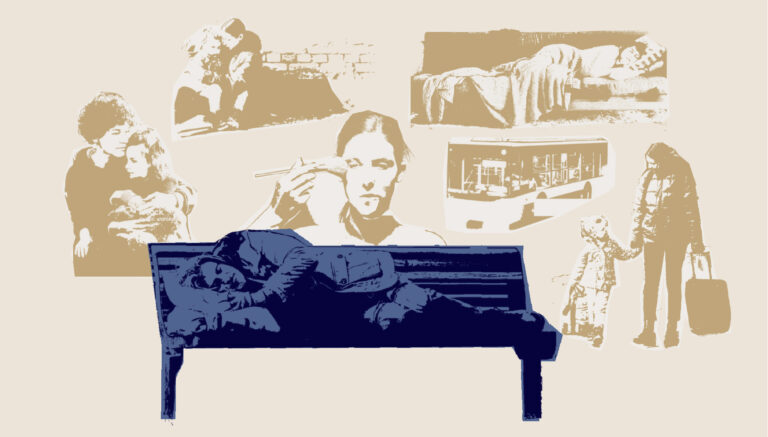
Zoe lives on the streets of Bristol and sells Dope Magazine to survive.
“I have had men offer me money for sexual acts – and all I want to do is sell these newspapers to get money for the night to stay in a shelter,” Zoe says. “Even then, I feel safer staying in an all-women’s prison than I do on the streets.”
Being street homeless is dangerous for anyone who goes through it, and frequently linked to multiple other traumas. But research show women are far more at risk of sexual exploitation and other harm when left alone on the streets – meaning they are also much less likely to be visibly rough sleeping than men.
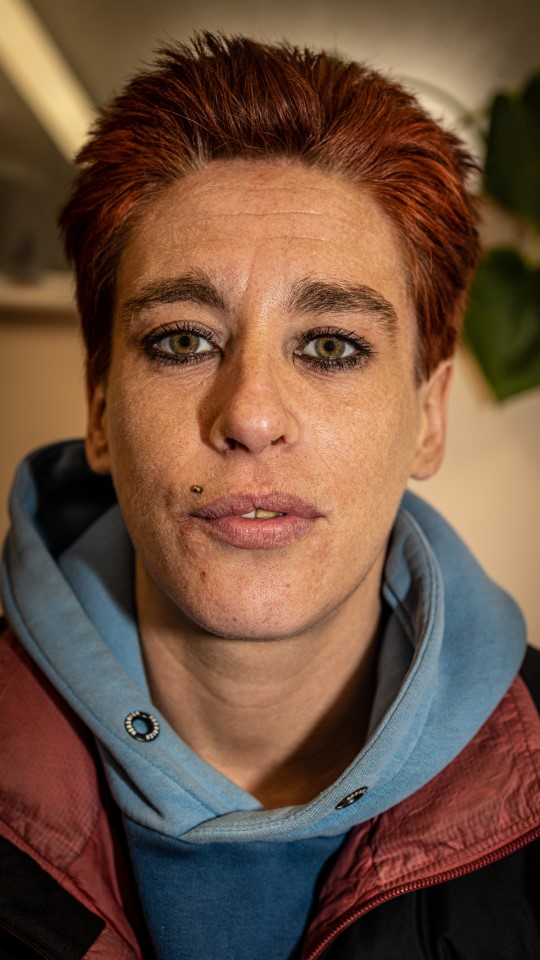
A major study out this month, the Women’s Rough Sleeping Census, found up to nine times more women may be sleeping rough than are recorded by the government’s annual count. Its findings highlighted ‘hidden’ locations where women reported sleeping and sheltering, including A&E waiting rooms, buses and trains, squats, strangers’ homes – or simply walking all night.
Many more women experience other hidden forms of homelessness, such as sofa surfing, or living in temporary accommodation – or remain in abusive households to keep a roof over their heads.
“It needs to be recognised that women who are homeless have a different experience to men,” says Ally Rush, the strategic lead at Shelter’s Bristol hub. “As women are more likely to form part of the ‘hidden homeless’ population, they are often missing from statistics.”
In turn, this situation means a lot of homelessness accommodation has been designed and delivered based on men’s experiences, Rush adds.
Her observations were emphasised by the recent census report, which found many women sleeping rough had previously been in homelessness accommodation. “This is of considerable concern, as it demonstrates that accommodation offered to women to resolve homelessness is either not sustainable or not suitable for their needs,” it said.
‘Homelessness tears your family apart’
Even when appropriate accommodation is available, it does not always provide relief from traumas predominantly experienced by women – such as domestic abuse.
Amanda* escaped an abusive household in London and moved to Bristol in 2006 with her three children. They sofa-surfed for a few months until Missing Link, a mental health and housing service for women in Bristol, placed her in a women’s refuge with her three-year-old son and her young teenage daughter. Her 16-year-old son was not allowed to stay with her.
“You’re trying to hold your family together and [it] just gets torn apart,” Amanda says. “He fled with me but he came here with me homeless.”
Her son ended up staying in a hostel where he got ‘cuckooed’ – meaning his home was taken over for criminal purposes – and involved in drugs, Amanda says. Not long after this, she got kicked out of her own accommodation for not abiding by the rules – which she says was as a result of feeling unsupported.
“When you’re fleeing domestic violence, plus you’ve got mental health problems, two kids with two different feelings going on, and you’ve got to manage your own and start to feel unsupported, you kick off,” Amanda says.
Over the space of 10 years, between 2006 to 2016, her eldest son spent time in and out of prison and on probation. When he finished his sentence “He was doing well and was working in construction but just ended up falling back into the crowd”. Eventually he had a stroke and is now in care. Her youngest son still lives with her and her daughter has just managed to move out into a place of her own, “thanks to Shelter’s help”.
Traumas experienced by women like Amanda underline the value of the groups for women run by the Nelson Trust charity, including those with lived experience of homelessness and recovering from substance misuse.
The organisation, which operates in the South West and South Wales, supports women who are involved, or at risk of being involved in the criminal justice system. It works with partners to ensure women’s needs and gender-informed ways of working are central in their approaches.
“We’re acknowledging that women’s homelessness is rising,” says Evie Carroll, a senior partnership worker for the Nelson Trust.
“Women who have been through homelessness often have several more complex needs… often a result of abuse, which is less common with men.” National statistics from 2022 show that, of 2.4 million adults experiencing domestic abuse, 71% were women.
Waiting for the ‘unchangeable’ to change
Here in Bristol, regular Women’s Action Group meetings bring together a group with lived experience of homelessness and poor housing in the city. Working with The Nelson Trust and Shelter, they focus on raising awareness of women-specific housing issues, with the aim of creating systemic change.
At one group I meet Sarah*, who after growing up in an overcrowded environment experienced nine years of sofa surfing, working as a cleaner and living “hand to mouth” between 1998 and 2007. Her story demonstrates that such issues extend well beyond acute homelessness and more broadly across housing need in today’s crisis environment.
After years of sleeping in places ranging from her sister’s sofa, the caretaker’s accommodation of her sister’s building, her car and a friend’s place, the system offered her a “little golden egg” when she was pregnant at 28.
The council offered her a temporary home managed by local housing association Sovereign in 2007, and awarded a rehousing priority. In 2009 she successfully bid for the two-bedroom house she now lives in.
However, her severe housing issues have continued as her family has grown and she struggles living in a now-overcrowded home, “covered in damp” with her three children. A 2021 report by Shelter found that one in four single women with children were living in a home harmful to their or their family’s physical and/or mental health. “We are living in a housing emergency that is disproportionately affecting women,” the report said.
Sarah explains that she had to appeal to the council for several years regarding the needs of her three children, all boys who share one bedroom. Two are twins, one of whom was diagnosed with ADHD in 2019 and also has auto-immune and sensory issues.
“My boys are identical twins, and were showing the same behaviours,” Sarah says. She says she had to wait more than six months during the pandemic for further diagnosis relating to the second twin, delivered over the phone in 2020.
The twins’ behaviour and the small space they are living in catalysed Sarah’s eldest son’s struggles with anxiety and an eating disorder, leading to issues with his heart, she adds.
Post-Covid, an assessment of her home was carried out – leading to Bristol City Council being advised to move Sarah and her family into a bigger property, in which there is a room for each of her sons.
The family has now been placed on the highest Band 1 housing priority. But the housing crisis in the city is now so acute that “even people with the greatest need often wait several years before they get a property”, the council’s website warns.
“Every time I go to bid on something, there is still not enough housing,” says Sarah. “I’m constantly waiting for a policy to change [what] is unchangeable.”
Councils like Bristol’s are under extreme pressure, acknowledges Shelter’s Ally Rush, who adds that women and children make up most of the clients at the charity’s local housing rights advice and advocacy service.
“Our advice workers help women navigate the very complex housing system… and offer more in-depth practical and emotional support,” she says. “This can be anything from supporting women to access health services to helping them resettle into their long-term accommodation.
But such support can only go so far when suitable housing is so scarce. “We need the government to adequately resource local authorities to deliver social housing, as this is the only truly affordable accommodation by design,” Rush says.
*Names have been changed
Independent. Investigative. Indispensable.
Investigative journalism strengthens democracy – it’s a necessity, not a luxury.
The Cable is Bristol’s independent, investigative newsroom. Owned and steered by more than 2,500 members, we produce award-winning journalism that digs deep into what’s happening in Bristol.
We are on a mission to become sustainable, and to do that we need more members. Will you help us get there?
Join the Cable today

